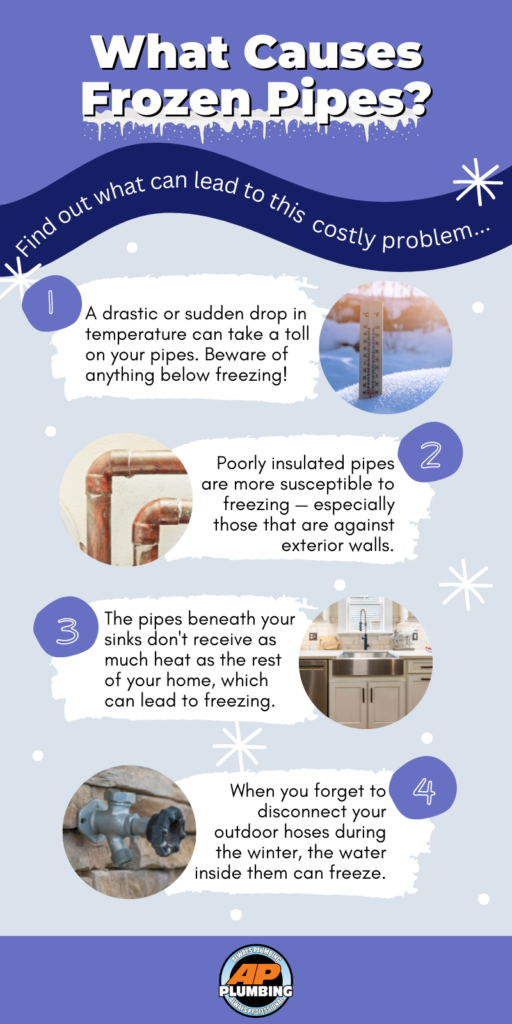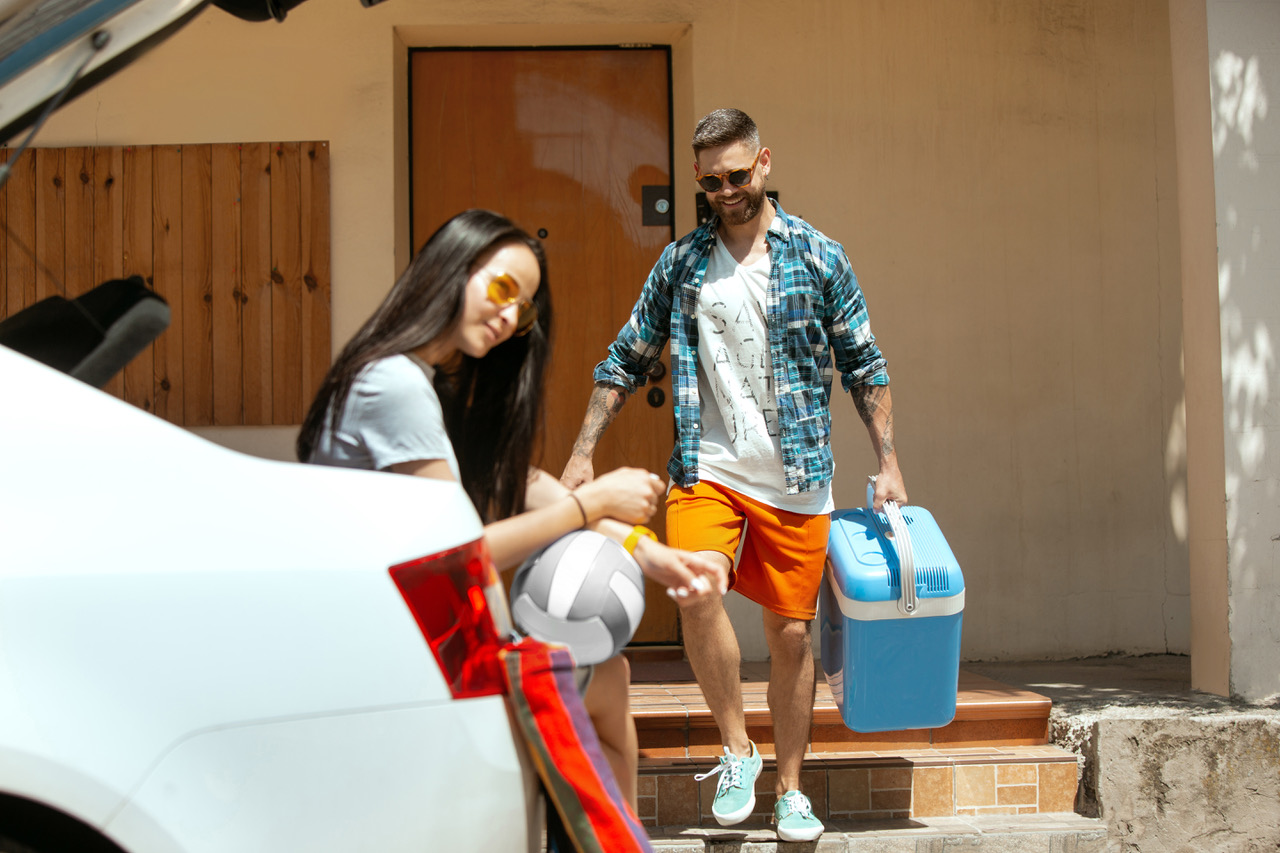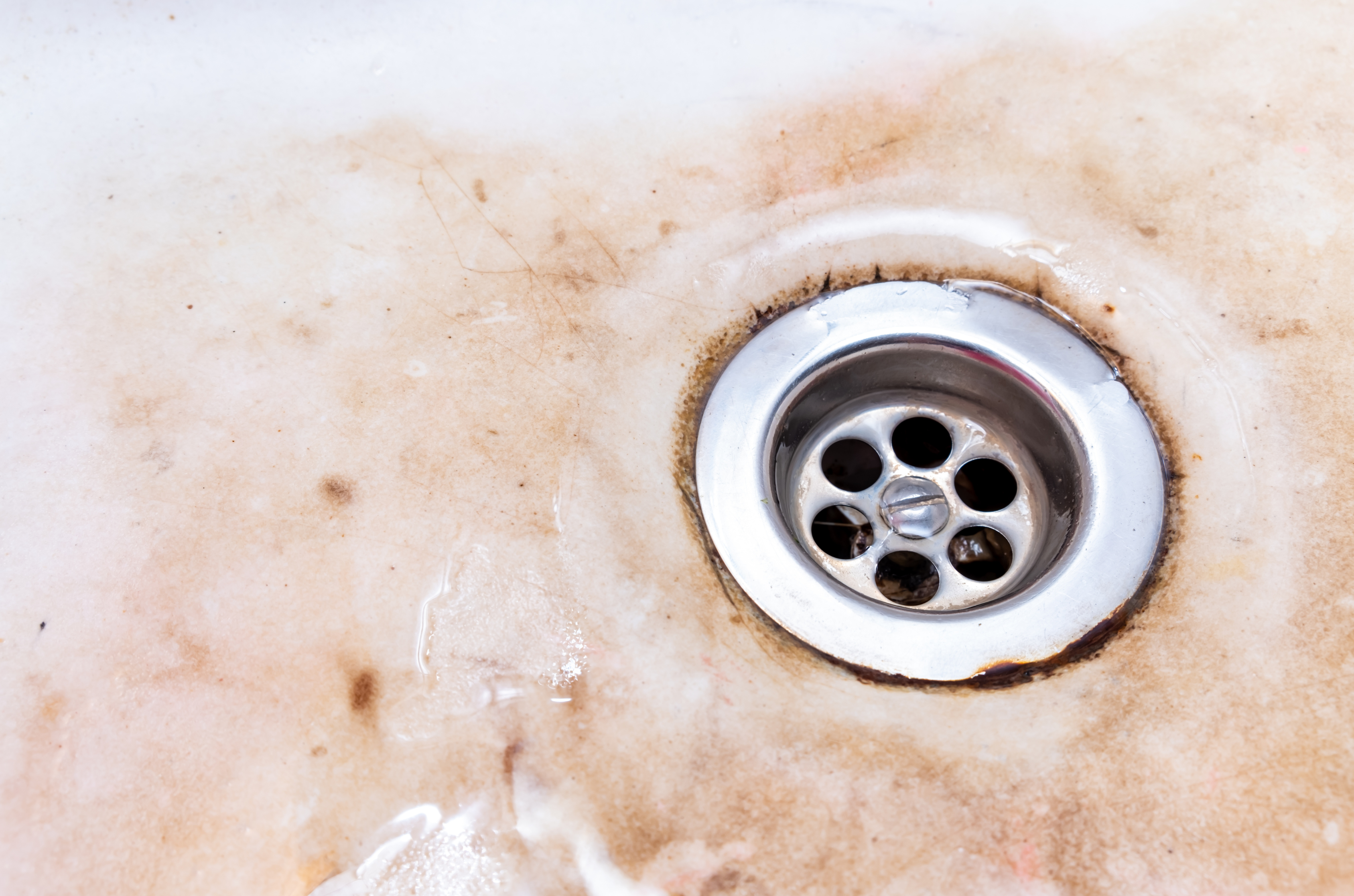When the temperature drops outside, your thoughts might immediately go to frosty windshields, ice-covered sidewalks, and snow-blocked driveways. Although all of these possibilities are enough to make any homeowner roll their eyes, you shouldn’t forget the toll the cold weather can take on your plumbing system. After all, frozen pipes are a common issue — and can have costly, disastrous consequences.
For homeowners looking to travel this winter, leaving your heater turned on and a few faucets running while you’re away might just save you from dealing with the headache and frustration — not to mention expenses — caused by frozen pipes. No one wants to come home to such an expensive and all-around preventable problem, which is why it’s important to prepare ahead of time.
Here are some of our favorite tips you can use to help prevent pipes from freezing over the winter.
What Causes Frozen Pipes?
The pipes in your home can freeze unexpectedly, leaving you with an unanticipated repair bill and serious water damage. When homeowners encounter this issue, they should call an emergency plumber in Rochester, NY, ASAP to limit the amount of damage done to their homes. Fortunately, you can avoid this issue with extra care and attention.
Before discussing tips to prevent frozen pipes this winter, it can be helpful to know what causes this problem in the first place. Use this guide to find out what can lead to frozen pipes during the coldest months of the year:

Identify Potential Problem Areas
The majority of your plumbing system has precautions in place to prevent cold temperatures from freezing your pipes. However, pipes found in the unheated interior spaces of your home (think basements, attics, crawl spaces, and the like) are at greater risk. Of course, the water pipes located along exterior walls are also more susceptible to freezing.
Once you’ve finished inspecting the interior of your home for proper insulation, don’t forget to look outside. You’ll want to disconnect garden hoses and store them away for the season. Although you might not be using them, these outdoor hoses can harbor a small amount of water that can freeze and lead to a burst, causing costly damage.
When learning how to prevent frozen pipes, you might be tempted to ignore your outdoor plumbing. However, taking the simple step of disconnecting and storing your outdoor hoses can make a world of difference in the long run.
Invest in Pipe Insulation
As we mentioned above, the water supply lines in colder parts of your home and along exterior walls face a higher likelihood of freezing. During the cold winter months, a lack of protection and pipe insulation can lead to serious problems. One of the most important tips to prevent frozen pipes this winter is to insulate any exposed pipes you come across — but especially those in problem areas.
Taking the time to invest in easy-to-install and affordable pipe insulation can provide the unheated areas of your home with additional protection. Your local hardware store has different types of insulation for sale at competitive prices to give you a head start.
Know the Recommended Temperature to Keep Your Pipes At
Keeping your pipes above a certain temperature threshold goes a long way towards preventing your pipes from freezing. The general rule of thumb requires homeowners to keep their pipes above 20° Fahrenheit to prevent them from freezing over. However, additional external factors can come into play that can cause your pipes to freeze. Knowing your area and how cold it can get at any given time can help you take the right precautions.
Keep Your Thermostat Set to a Specific Temperature
If you want to know how to prevent frozen pipes from freezing, it might be time to check in with your home’s thermostat. One of our tips to prevent frozen pipes this winter is to set your thermostat to about 68 degrees Fahrenheit when you’re home.
While you may be tempted to turn your thermostat off while you’re off on vacation, leaving your home completely unheated can adversely affect your plumbing. As temperatures drop with the cold weather, your home needs a continuous supply of warm air to keep your pipes above the recommended temperature.
If your home’s internal temperature continues to drop, your pipes are at a higher risk of freezing over and causing more significant problems. Keep the heating system set to no less than 55 degrees Fahrenheit if you’re away from home for an extended period.
Be Mindful of What Doors You Keep Open
Are you still wondering how to prevent frozen pipes? The good news is that there are a few more easy steps you can take to avoid this costly and inconvenient problem.
As you know, your home’s plumbing system represents a complex system of pipes that provide every part of your home with the water you need. The doors you leave open can play a vital role in getting the right amount of air circulation to help keep your pipes warm. For example, you’ll want to open your kitchen and bathroom cabinet doors to better circulate warm air that will help keep your pipes from freezing over.
Additionally, keeping your garage door closed can help you better regulate your home’s temperature. With the garage door open to the outside, cold air can come in and mess with the delicate balance that helps prevent your pipes from freezing.
What Do I Do If My Pipes Freeze?
When you try to thaw frozen pipes, you need to have a plan to do it so that it won’t cause additional water damage. While a burst pipe means you need to shut off the water supply immediately to prevent flooding, you can try these steps to thaw frozen pipes:
- Turn on the faucet.
- Apply heat to the frozen area. You can use a hair dryer or space heater, but be careful.
- Avoid using an open flame on this pipe, as this poses a fire hazard.
- Keep the flame there until you achieve full water pressure.
- Call the professionals at AP Plumbing if you can’t find the frozen pipe.
If a pipe bursts, shut off the water supply immediately to prevent flooding. Call an emergency plumber for assistance and clean up any water leaking from the pipe while you wait.
Keep Your Pipes in Check This Winter
You shouldn’t have to worry about significant water damage caused by burst pipes this winter when you go on vacation. With these expert tips from the AP Plumbing team, you can be better prepared for the winter weather. Contact our team to schedule your first appointment today!






